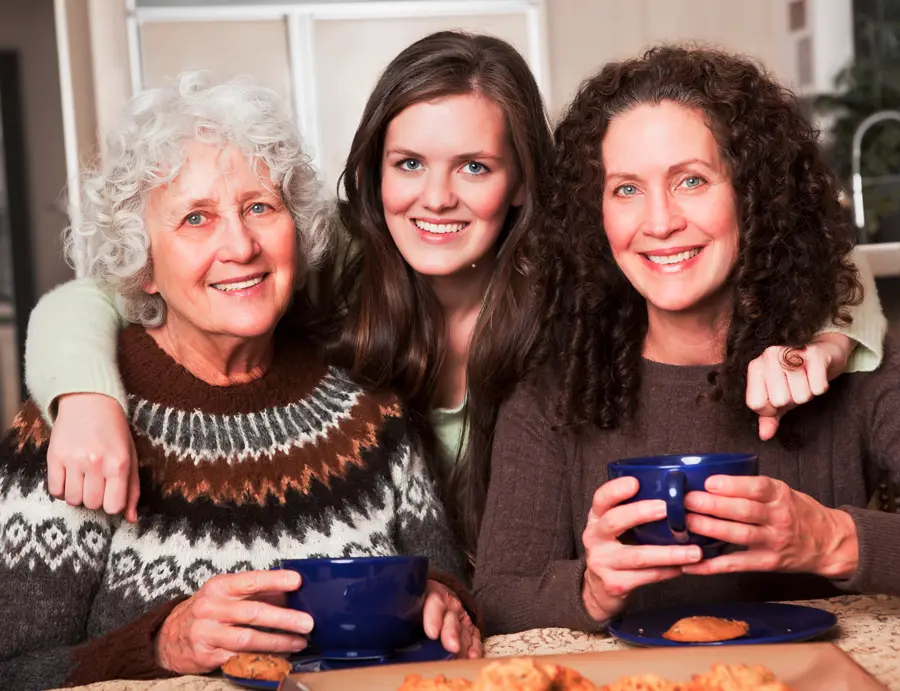
Breast Care
Genetic Counseling & Testing
Genetic Counseling at Windsong
The Windsong Breast Care Hereditary Cancer Risk Program concentrates on hereditary risk assessment, genetic testing, and screening plans based on individualized risk assessment. Our specially trained clinical geneticists can discuss ways to minimize cancer risk or ensure early detection of cancer, when there is the greatest chance of a cure.

Family History and Genetic Counseling
Genetic counseling and testing can help individuals better understand their risks for certain types of cancer. An appointment with a genetic counselor includes analysis of a person’s medical and family histories. Genetic counselors are also trained to educate patients about testing options, management and prevention. They also discuss the impact results may have on family members.
It is crucial to have this complex information explained by a specialized provider. The cancer genetic counseling program at Windsong is committed to providing patients with the information they need to make informed decisions.
Genetic counseling and testing may be considered for individuals with a personal or strong family history of cancer. And while family history is helpful, there are a number of ways genetic counseling can help you even if you don’t have much information on your family history. If you’ve been diagnosed with cancer under the age of 50, or if it is a rare type of cancer, genetic counseling can help you decide whether genetic testing might be beneficial. Genetic testing can help identify whether you inherited a gene mutation that caused your cancer and if so, this information could help doctors treat you more effectively.

Am I eligible?
Personal or Family History
Patients that have a personal or family history of one or more of the following may be appropriate for genetic counseling:
- Breast and Ovarian Cancer, or any cancer type
- Breast cancer diagnosed at age 50 or younger
- Ovarian cancer at any age
- Three or more family members* with breast, ovarian, pancreatic, and/or prostate cancer on same side of family
- Triple-negative breast cancer at age 60 or younger
- Bilateral breast cancer or multiple primary breast cancers
- Breast and ovarian cancer in the same individual
- Male breast cancer
- Ashkenazi Jewish ancestry
- Known genetic mutation in a family member
- Colorectal and Endometrial Cancer
- Colorectal cancer diagnosed at age 50 or younger
- Endometrial cancer diagnosed at age 50 or younger
- Three or more relatives with colorectal cancer and/or endometrial cancer
- Known genetic mutation in a family member
- A previously identified cancer gene mutation in the family*
*Family member defined as a first, second, or third degree relative (parents, siblings, children, grandparents, aunts, uncles, nieces, nephews, grandchildren, half-siblings, great-grandparents, cousins, great-aunts, great-uncles, or great-grandchildren)

Frequently Asked Questions
Cancer is usually caused by gene mutations. Changes in genes or somatic mutations may arise natrually as we age. They may also arise when a cell’s DNA has been damaged. These acquired mutations are not passed on from parents to their children.
A different type of mutation called a hereditary mutation, or germline mutation, is usually inherited from one or both of the person’s parents. These mutations are present in nearly every cell of the body and can be passed down in families. Although carrying these hereditary mutations does not necessarily mean a person will get cancer, it does increase their risk of developing the disease at some point during their lifetime.
If you have a family history of cancer, or if you would like to find out whether you or a family member has an increased likelihood of developing cancer, the genetic counseling and testing frequently asked questions may help you to better understand how the information can help you and your doctor in making important treatment decisions.
Genetic testing can be done by collecting a small tube of blood or saliva. The sample is sent to a specialized laboratory to be processed. During genetic counseling, you will be asked questions about your medical history and family history. Then, you will learn about genetic testing, and the benefits and limitations. If you are interested in pursuing genetic testing, a sample can be collected at that time. The visit takes approximately 40 minutes.
Talk to your relatives about any family history of cancer. Important details include age at which family members were diagnosed, type of cancer, and if relatives have had genetic testing. If a relative had positive genetic test results that disclosed a mutation, a copy of these results is necessary to ensure the most appropriate genetic test is ordered for you. Also, if you previously had cancer genetic testing yourself, a copy of these results is also helpful.
You will get a call from Windsong in approximately 3 weeks with results
They can. Knowing if a cancer gene mutation is running through your family may help determine who else in your family is at risk and steps they can take to avoid cancer or ensure early detection.
Genetic counseling is currently offered at our Williamsville location.
Request an appointment online or contact us at 716-626-6300.
Health insurance will often cover genetic counseling similar to how a visit to any specialist is covered. In many cases, health insurance covers genetic testing when a patient meets criteria and it is recommended by a genetic counselor. For many patients, this is considered a preventative service and there is no cost. If insurance denied coverage, the maximum out-of-pocket cost is $250.





